And why would you? YOUR child is going to be an absolute angel. That kid losing it at the grocery store? Nope, mine won't ever do that. The kid hitting another at the playground? My precious child would NEVER. Sibling fighting? Oh, no -- mine will all be loved the same, so what would they have to fight about? Six years into this thing, I laugh daily at my circa 2007-08 naivete'.
As it turns out, sometime around age 19 months, they become possessed by demons. It doesn't get any better for a long while. When they're not hungry, tired, or just plain grumpy, they occasionally do what you ask, when it suits them. They hit when they're frustrated. They look you in the eye, then ignore your request. They lose their shit when they want a toy at Target they can't have. And don't get me started about how they act when it's time to get dressed in the morning, have dinner when they're watching their favorite show, clean up the playroom, or even get in the car after school.
So for the past several years, how have I handled this outrageous breach of courtesy? It's a multi-step process:
1. I calmly ask them to comply.
2. I calmly re-ask them to comply.
3. I calmly re-re-ask them to comply.
4. I begin to raise my voice, thinking that maybe they simply didn't hear me.
5. I stalk over to them, thinking the intimidation and reminder of my presence will make them comply.
6. I yell.
7. I yell louder, threatening to take away stuff.
8. If it gets really bad, someone might get a pop on the tush or leg.
9. I feel terrible about the yelling and the spanking, and nothing has gotten done in the meantime.
Now friends, I'm here to tell you: this multi-step process as described above does not work. I usually get yelled back at, laughed at, ignored, or called some name (by Brady). And the house is in an uproar, I'm stressed to the nines, which stresses out Shawn, and everyone's yelling and screaming. This doesn't feel like the loving house I was expecting. And let me reiterate: the request that caused the uproar has not been fulfilled. My blood pressure is through the roof, and it didn't get results. Add this to a lot of exhaustion, the regular demands of work and home, and the fact that Shawn and I rarely get a break, I was beginning to feel like I was creating a recipe for disaster. (Worst-case Scenario Disaster That Keeps me Awake at Night: children who grow up to be angry, in constant therapy, and always sleeping on friends' couches because they can't keep a job after dropping out of high school; parents who die at 60 from stress-related illnesses.)
Backing up a bit, I'll tell you how I was raised. While I'm sure I was perfect, my mom and dad would undoubtedly disagree, and I spent a lot of time in my room. My dad yelled -- a LOT -- and I'm like him in that way. Shawn's parents did some yelling, but he's an extremely mellow person and is unnerved by the loudness and anger. I want to break away from the screaming and the hitting. I don't like it, it doesn't help, and it makes us all feel terrible.
So I figured, there has to be a better way. I think I might have found it. It's called Positive Discipline.
Someone I grew up with in Savannah is a certified instructor, and I'd heard about it here and there, but at first I balked. "Oh," I thought. "Positive discipline? Isn't that an oxymoron? Is this one of those hippy-dippy classes that puts kids' self-esteem as the priority?" (Side note: I am not at all concerned about my kids' self-esteem. They all seem to have that in spades. I don't want to raise any Hannah Horvaths.)
So I learned a little more, attended an informational session, and got inspired. Did you know that "discipline" doesn't mean "punishment" but instead means "teach?" The thing that got me was this quote from the woman who literally wrote the book on PD, Jane Nelsen:
“Where did we ever get the crazy idea that in order to make children do better, first we have to make them feel worse? Think of the last time you felt humiliated or treated unfairly. Did you feel like cooperating or doing better?”
I just completed a two-day course, and I'm encouraged and excited to learn more. Without getting into it too much (although I encourage you to learn more if you're having issues with your kids), I do want to say that it's about mutual respect, connecting with your children, being kind but firm, and focusing on long-term solutions rather than short-term punishments.
The criteria are:
--Helps children feel a sense of connection. (Belonging and significance)
--Is mutually respectful and encouraging. (Kind and firm at the same time.)
--Is effective long-term.(Considers what the child is thinking, feeling, learning, and deciding about himself and his world – and what to do in the future to survive or to thrive.)
--Teaches important social and life skills. (Respect, concern for others, problem solving, and cooperation as well as the skills to contribute to the home, school or larger community.)
--Invites children to discover how capable they are. (Encourages the constructive use of personal power and autonomy.)
Now I ask questions instead of barking orders (Instead of "Put your shoes by the back door, I ask, "Where do your shoes belong?" And damned if they don't put their shoes where they belong.). I ask them WHY they feel a certain way or want a certain something. I get down on their level and look in their eyes instead of screaming at them from across the room. We're going to create routine charts to help move things along at stressful times. And sometimes, I just give hugs when everything has turned to crap.
The part I like the best is how PD allows kids to see how much they can do and figure out for themselves. I was raised to be independent, and I deeply value that trait. But I'm kinda raising my kids to need me for everything, and I don't like it. The second day of the course was like a group therapy session. I was reminded about my control issues, which I honestly thought I'd gotten over. NOT SO MUCH. I was actually deflecting the stuff I couldn't control into stuff I thought I could control, and when I realized I had no control, I was losing my shit at the kids. Just realizing this has helped me make better choices around the kids. Not always -- I still get irrationally angry-- but it is helping.
The hardest part for me has been accepting that the consequences that come out of the choices the kids make are not punishments. So, for instance, I'm not going to take away Brady's games for not doing his homework, but when we all come down from the tizzy caused by him not doing his homework, we work out a solution TOGETHER that might result in him not getting to play any games until he finishes his homework. So he sees the cause-and-effect and does have consequences without feeling like crap about them. It's all more complex than this, and there are many more tools. But I'll tell you this: when I use the tools right, it usually works.
It's going to take some practice, some adjustment, and some serious overcoming of my own issues. But I'm willing to work on these issues to raise self-sufficient children with self-control, compassion, and respect for themselves and others. Many people will undoubtedly think this is all bunk, that I'm crazy. I guess we'll see as the kids grow up, as we bring this philosophy into our house. But mutual respect, understanding, and the natural acquisition of life skills makes perfect sense to me. So wish us luck! I'll keep you updated.

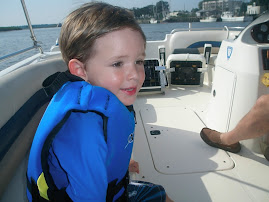
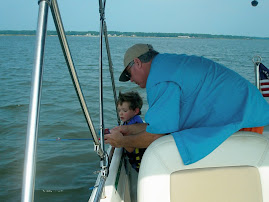
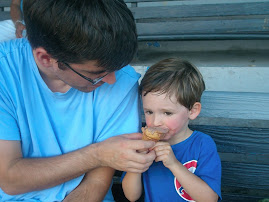
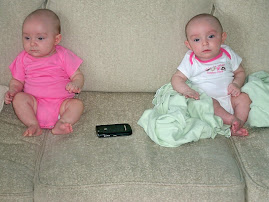




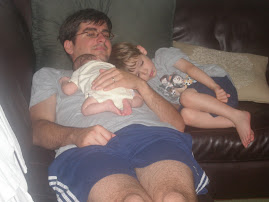
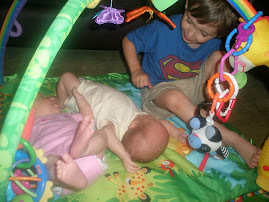
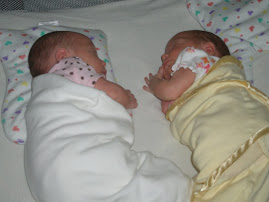

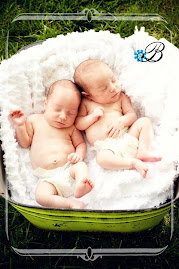

As someone who doesn't have kids, I have no clue whether this is crazy or bunk. What I do know is that by caring enough to do things differently and work on yourself in order to help your family, that says a great deal about you as a parent. Your children are fortunate to have you and Shawn as parents.
ReplyDeleteThanks, Heather! I know one day, when they have kids, they'll realize that. ;)
ReplyDelete